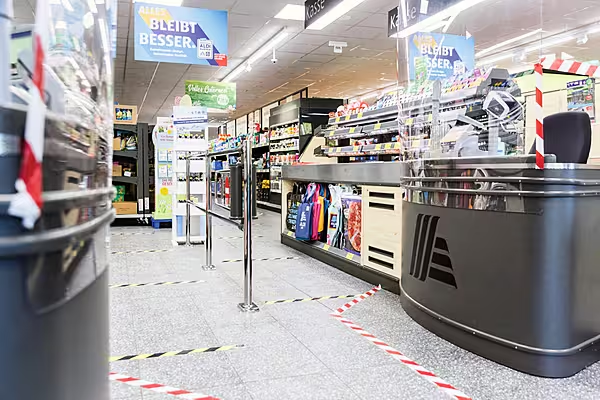The COVID-19 crisis is likely to reshape how retail operates. Miloš Ryba, Head of Retail – Strategic Projects Insight at IGD looks at some points worth considering. This article first appeared in ESM Issue 4 2020.
How will shoppers shop? How will channel growth shift? How long will the crisis last for my business? How are other businesses reacting? What can I learn from past economic crises? And where should I look for best practice?
These are just some of the questions that IGD has heard recently from our customers and contacts across the FMCG industry.
Adjusting your business strategy to a post COVID-19 environment will likely be a complex process, involving multiple hypotheses. Let’s have a look at some of the questions in more detail.
1. How Will Channel Growth Shift?
At IGD, we have modelled market size growth for number of countries using three scenarios. For the UK grocery market, we have forecast growth in the range of 5.0% to 6.2% in 2020, following a 1.1% increase in 2019.
We expect a bigger shift in shopper behaviour the longer social distancing remains in place, and the more frequently it is reintroduced. The channels shoppers use could change significantly in the next year, particularly during a deep economic recession.
Discounters have not been winning during the pandemic. In the first quarter of 2020, across Europe, shoppers shopped less frequently and with bigger baskets. They visited local stores and ordered more groceries online. This had a negative impact on the growth of the discount channel.
2. How Long Will The Crisis Last?
The growth of your business will depend not only on the length of the economic recession but also on the path of the virus, as well as whether we have a single outbreak or multiple outbreaks of the pandemic.
We have created four macroeconomic scenarios based on these factors to show how they would affect retailers’ strategies and shopper behaviour.
For example, if you combine a recession that is relatively quick to recover from with multiple outbreaks, the online grocery channel will likely grow very quickly. Retailers will invest considerably in online capability and divert investment from stores.
3. How Will Shoppers Shop?
IGD’s ShopperVista regularly tracks UK shopper attitudes, and our research has found that nearly half (47%) would be happy to share data about themselves during the pandemic if it enabled them to be prioritised for online grocery deliveries. This indicates that in the future, shoppers may be more open to sharing information to help them get the services they need.
To understand future shopper behaviour, we use a behavioural science research technique and create hypotheses for a category or product in online focus groups, then test these in an online survey.
Companies should be regularly tracking and testing hypotheses to keep up with rapid changes in shopper behaviour.
4. What Can I Learn From Past Economic Crises?
We can see how retailers’ sales were affected by past financial crises and recessions, like that in Europe (2008-2010) or in Greece (2008-2013). The grocery retail market contracted in most European countries in 2009.
Retailers rationalised their ranges and announced permanent price cuts on essential products several times. They increased promotional activities, especially on branded products.
Demand for private label soared, which led to increased investment in vertical integration: for example, Lidl decided to build its own chocolate factory in Germany. The pace of store openings also slowed down significantly – in Greece, the total sales area in modern grocery stores shrunk by 5% in 2013.
The global FMCG market has matured significantly in the last decade, especially in areas like private label and e-commerce, but these learnings from the past must be put into context with a specific retail market.
5. How Are Other Businesses Reacting?
Our quarterly consumer packaged goods (CPG) outlook survey helps us understand developments in other markets. In our most recent survey (May 2020), the very clear message is that companies are preparing for changes.
Just under two thirds (64%) expect to see ranges rationalised, while less than a quarter (22%) plan to keep marketing budgets unchanged. This provides a good indication of the priorities of many businesses and helps with benchmarking activity and future planning.
There’s no doubt that COVID-19 has accelerated retail evolution, and the gap between developing and developed retail markets will likely narrow further.
Competitive advantage will be gained not from the amount of data, but from the ability to distil relevant data and turn these insights quickly into action. Best practice learnings, which used to come from developed markets, will now come from agile businesses.
For further insights on the COVID-19 outbreak, visit www.igd.com/covid-19
© 2020 European Supermarket Magazine – your source for the latest retail news. Article by Stephen Wynne-Jones. Click subscribe to sign up to ESM: The European Supermarket Magazine.














